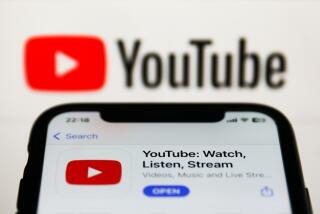FCC wants to improve quality of closed captioning
- Share via
“Five wins and a very light power reese know” sounds more like gibberish than a weather forecast.
But that was the closed captioning on a WeatherNation report last month. What the captioning was supposed to say was, “high winds and a very light, powdery snow.”
Closed captioning is designed to help the deaf and hearing-impaired enjoy television. But the captions are often riddled with typos or incomplete sentences that leave viewers struggling to make sense of what’s being said.
ON LOCATION: Where the cameras roll
Sometimes the captioning is erratic, disappearing midway through a program. Other times, it is not there at all even though a 1996 law requires that all video programming be closed captioned.
Now the Federal Communications Commission is doing something about it. On Thursday, the agency is expected to adopt new rules that it hopes will improve the quality of closed captioning.
Although the proposals barely fill two pages, they come 10 years after the FCC first said it wanted to overhaul closed captioning in response to complaints from consumer groups.
FCC Chairman Tom Wheeler, who took office just a few months ago, pushed to get the item on the fast track after it had sat in limbo for a decade.
The FCC will require that captions must match spoken words in dialogue and convey background noises and other sounds to the fullest extent possible, according to agency officials familiar with the order.
PHOTOS: Celebrities by The Times
The order will also mandate that captions not block other content on the screen, overlap one another, run off the edge of the video screen or be blocked by other information.
The bar will be slightly lower for news, sports and other programming that airs live as opposed to entertainment programming that is completed weeks before airing. However, the agency still wants improvement on today’s often sloppy captioning for live programming.
As part of Thursday’s rule-making, the FCC is also seeking comments on whether the burden of assuring that closed captioning is accurate should be shifted away from the distributors -- broadcasters and cable and satellite operators -- to content creators.
ALSO:FCC won’t appeal net neutrality ruling
Federal Court in Utah sides with broadcasters against Aereo
Comcast acquisition of Time Warner Cable could undermine CBS
Follow Joe Flint on Twitter @JBFlint.
More to Read
From the Oscars to the Emmys.
Get the Envelope newsletter for exclusive awards season coverage, behind-the-scenes stories from the Envelope podcast and columnist Glenn Whipp’s must-read analysis.
You may occasionally receive promotional content from the Los Angeles Times.











